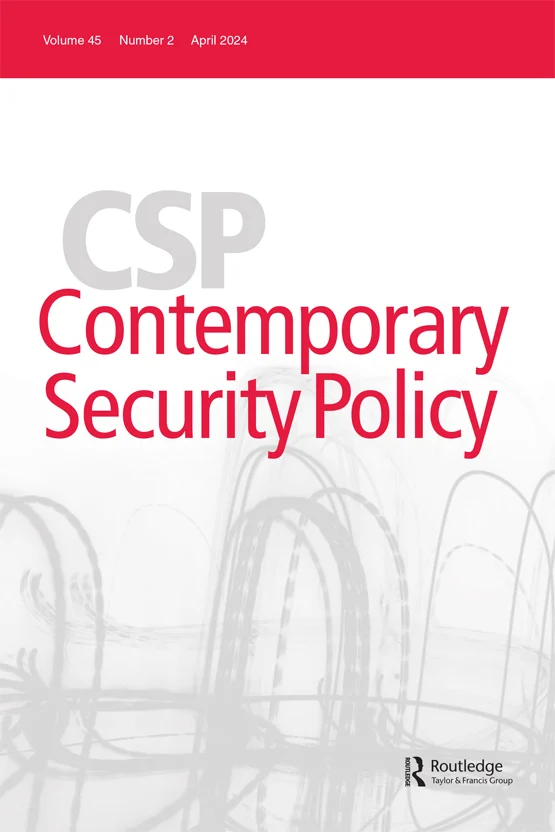Great power identity in Russia’s position on autonomous weapons systems
IF 5
1区 社会学
Q1 INTERNATIONAL RELATIONS
引用次数: 5
Abstract
ABSTRACT This article proposes an identity-based analysis of the Russian position in the global debate on autonomous weapons systems (AWS). Based on an interpretation of Russian written and verbal statements submitted to the United Nations Convention on Certain Conventional Weapons (CCW) meetings from 2014 to 2022, I find that two key integral elements of Russian great power identity—the promotion of multipolarity and the recognition of Russia’s equal participation in global affairs—guide its evolving position on the potential regulation of AWS. The analysis makes an empirical contribution by examining one of the most active participants in the CCW discussion, an opponent to any new regulations of so-called “killer robots,” and a developer of autonomy in weapons systems. It highlights the value of a more thorough understanding of the ideas guiding the Russian position, assisting actors who seek a ban on AWS in crafting their responses and strategies in the debate.俄罗斯自主武器系统立场中的大国身份
摘要本文对俄罗斯在全球自主武器系统辩论中的立场进行了基于身份的分析。根据对俄罗斯提交给2014年至2022年《联合国特定常规武器公约》会议的书面和口头声明的解释,我发现,俄罗斯大国身份的两个关键组成部分——促进多极和承认俄罗斯平等参与全球事务——指导了其对AWS潜在监管的不断演变的立场。该分析通过考察《特定常规武器公约》讨论中最积极的参与者之一,反对任何所谓“杀手机器人”的新法规,以及武器系统自主性的开发者,做出了实证贡献。它强调了更彻底地理解指导俄罗斯立场的思想的价值,帮助寻求禁止AWS的行为者在辩论中制定应对措施和策略。
本文章由计算机程序翻译,如有差异,请以英文原文为准。
求助全文
约1分钟内获得全文
求助全文
来源期刊

Contemporary Security Policy
Multiple-
CiteScore
14.60
自引率
6.80%
发文量
22
期刊介绍:
One of the oldest peer-reviewed journals in international conflict and security, Contemporary Security Policy promotes theoretically-based research on policy problems of armed conflict, intervention and conflict resolution. Since it first appeared in 1980, CSP has established its unique place as a meeting ground for research at the nexus of theory and policy.
Spanning the gap between academic and policy approaches, CSP offers policy analysts a place to pursue fundamental issues, and academic writers a venue for addressing policy. Major fields of concern include:
War and armed conflict
Peacekeeping
Conflict resolution
Arms control and disarmament
Defense policy
Strategic culture
International institutions.
CSP is committed to a broad range of intellectual perspectives. Articles promote new analytical approaches, iconoclastic interpretations and previously overlooked perspectives. Its pages encourage novel contributions and outlooks, not particular methodologies or policy goals. Its geographical scope is worldwide and includes security challenges in Europe, Africa, the Middle-East and Asia. Authors are encouraged to examine established priorities in innovative ways and to apply traditional methods to new problems.
 求助内容:
求助内容: 应助结果提醒方式:
应助结果提醒方式:


